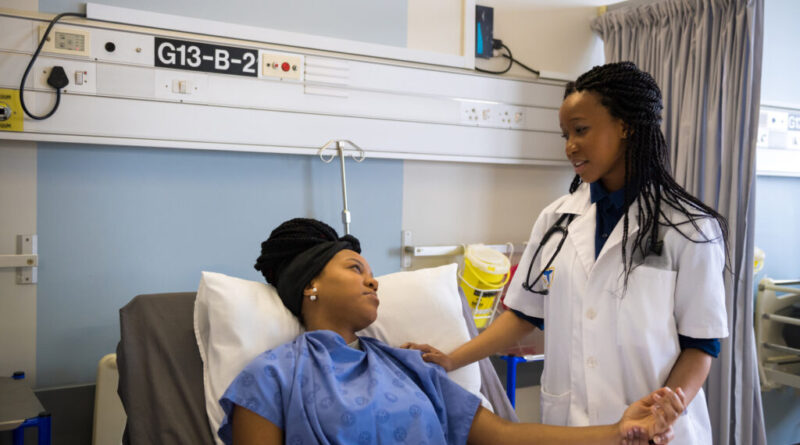HBCU Fayetteville State University Training Black Women To Examine Sexual Assault
Sharita Godwin works in a North Carolina hospital that doesn’t have a single Black nurse who is trained to administer a forensic exam for sexual assault victims.
NBC News reports Godwin joined seven other Black nurses as part of the Fayetteville State University‘s first class of aspiring sexual assault nurse examiners. The training, which took place this fall over several multi-day sessions, focused on treating patients in crisis, including collecting forensic evidence for law enforcement and preventing STDs or pregnancy.
Godwin, who has been an E.R. nurse at the Betsy Johnson Hospital in Dunn, NC for almost a decade, told NBC she trained to become certified in sexual assault exams to support some of the hospital’s most vulnerable patients.
“It makes you feel a little bit more comfortable,” Godwin, 36, said of patients seeing a nurse who looks like them.
“The patient might be more willing to open up.”
The training was organized by Dr. Sheila Cannon, the associate dean of the school of nursing at Fayetteville State, with funding from the state legislature. Even though 20% of North Carolina residents are Black, according to census records, nurses trained to examine sexual assault victims are overwhelmingly white, according to Jennifer Pierce-Weeks, the CEO of the International Association of Forensic Nursing.
More Black female forensic examiners are needed across the country. According to the American Psychological Association (APA) for every Black woman who reports a rape, at least 15 others do not report it. Additionally, one in four Black girls will be sexually abused before the age of 18, and one in five Black women are survivors of rape.
The Fayette State training program was the first Pierce-Weeks had heard about at an HBCU school, and hopes other HBCUs institute similar training to diversify the field of sexual assault nurse examiners.
“What Fayetteville State is doing is critically important and a huge step,” Pierce-Weeks said, “because I feel like nursing, in general, is struggling with this.”

